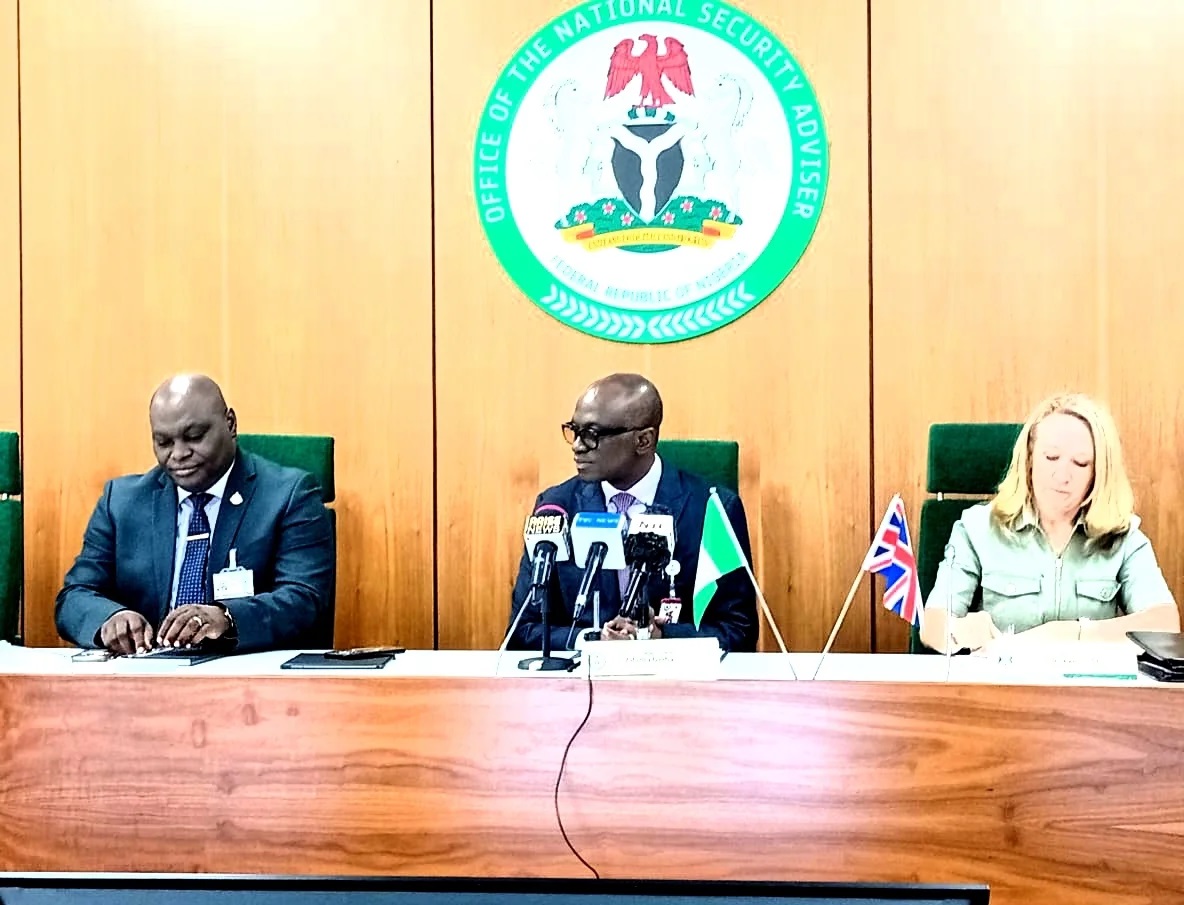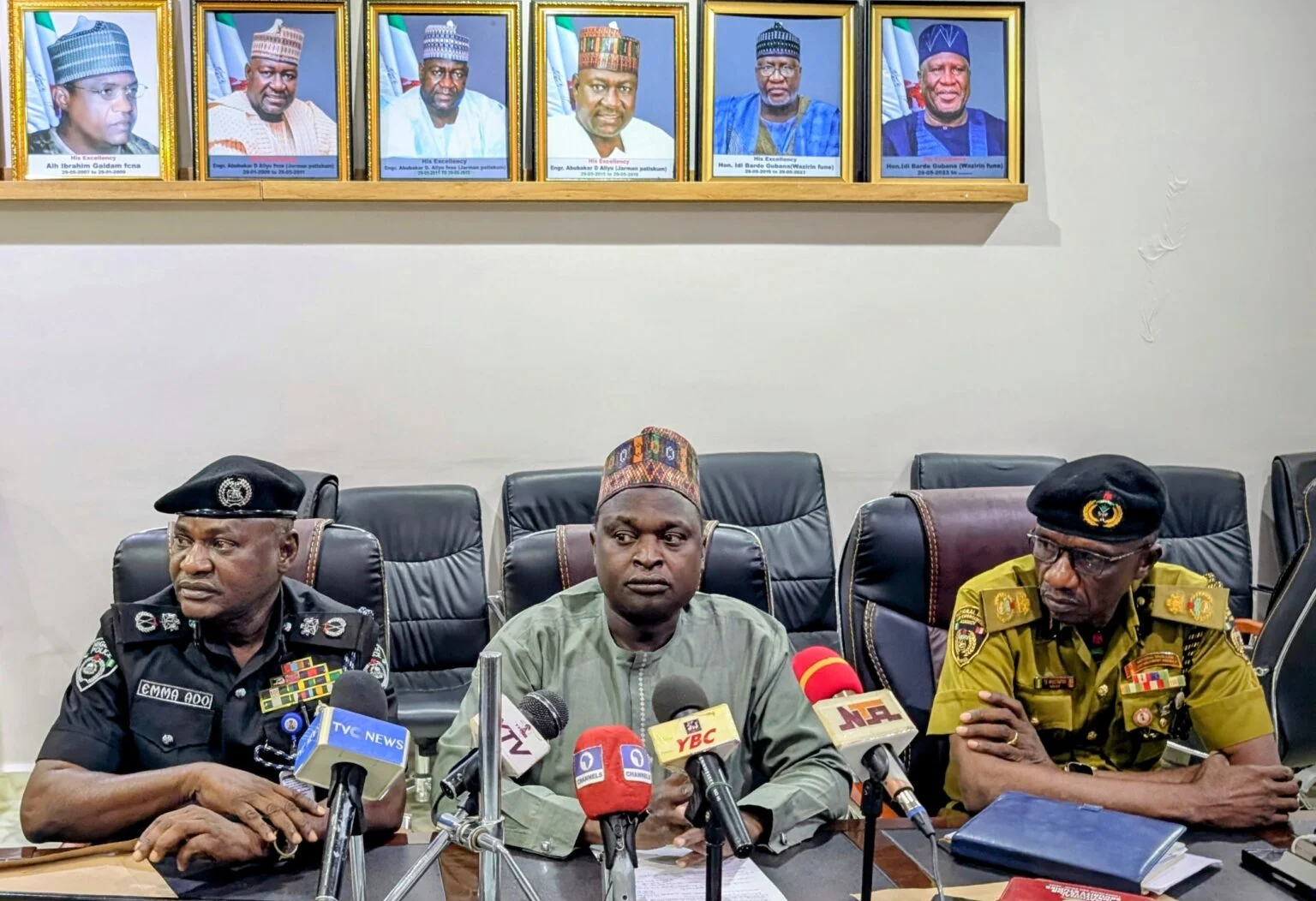The Federal Government and its security forces have reiterated their resolve to rescue the remaining Chibok schoolgirls and Leah Sharibu, years after their abductions, affirming that efforts to combat kidnapping remain ongoing and collaborative.
Maj.-Gen. Adamu Laka, National Coordinator of the National Counter Terrorism Centre (NCTC), under the Office of the National Security Adviser (ONSA), disclosed this on Tuesday in Abuja while briefing journalists on the activities of the Multi-Agency Anti-Kidnap Fusion Cell. The Cell operates in partnership with the United Kingdom’s National Crime Agency.
Laka emphasized that security agencies have not abandoned the search for the abducted girls, noting that recoveries over the years were achieved through both military operations and negotiations.
“Since they were kidnapped, the rescues did not happen all at once. It has been a gradual process involving negotiations and tactical operations,” he said.
The News Agency of Nigeria (NAN) recalls that 276 girls were abducted from Government Girls Secondary School, Chibok, Borno State, in April 2014. Eleven years later, 87 of them remain in captivity. A total of 189 girls have so far regained freedom, either through rescue operations or by escaping captivity.
Similarly, Leah Sharibu was among 110 schoolgirls abducted from Government Girls’ Science and Technical College, Dapchi, Yobe State, on February 19, 2018. While most of the Dapchi girls were released, Sharibu remains in captivity reportedly for refusing to renounce her Christian faith.
Maj.-Gen. Laka, who was part of the early operations to recover the Chibok girls, stated that some of the remaining captives may have been forcibly married to insurgents, complicating rescue efforts. He urged the public to also acknowledge the plight of other kidnap victims, including aid workers with international organizations like UNICEF, UNHCR, and IOM.
“Let our focus not be only on the Chibok girls. Others have also been kidnapped and rescued. We don’t always talk about it publicly, but our work continues,” he said.
“Our prayer is that the remaining 87 or so girls will all be rescued – by God’s grace.”
In her remarks, the UK Deputy High Commissioner to Nigeria, Gill Lever, condemned the recent killing of 33 kidnap victims by bandits in Banga town, Kaura Namoda Local Government Area, Zamfara State.
“Kidnapping is an unspeakable crime. It destroys families, communities, mental health, and hinders economic development,” she said.
“We must stop this. We must limit this. We all feel passionately about the terrible impact of kidnapping.”
Lever highlighted the ongoing three-year collaboration with Nigerian security agencies through the Multi-Agency Kidnap Fusion Cell, which was created to improve intelligence-sharing and coordinated responses to abductions nationwide.
According to her, the Cell supports the Nigerian Police and the Department of State Services (DSS) by collecting, analyzing, and disseminating kidnap-related data to the Office of the National Security Adviser, and by tracking incident trends across states.
“The training going on this week and the rollout of the Fusion Cell’s capacity across states stems from the broader UK-Nigeria Security and Defence Partnership,” she explained.
She added that the agreement, signed by the two nations’ foreign ministers last year, is rooted in mutual trust, respect, and support.
“We met recently in London to further this partnership. Expanding the Fusion Cell’s capabilities was one of the key outcomes,” Lever concluded.





